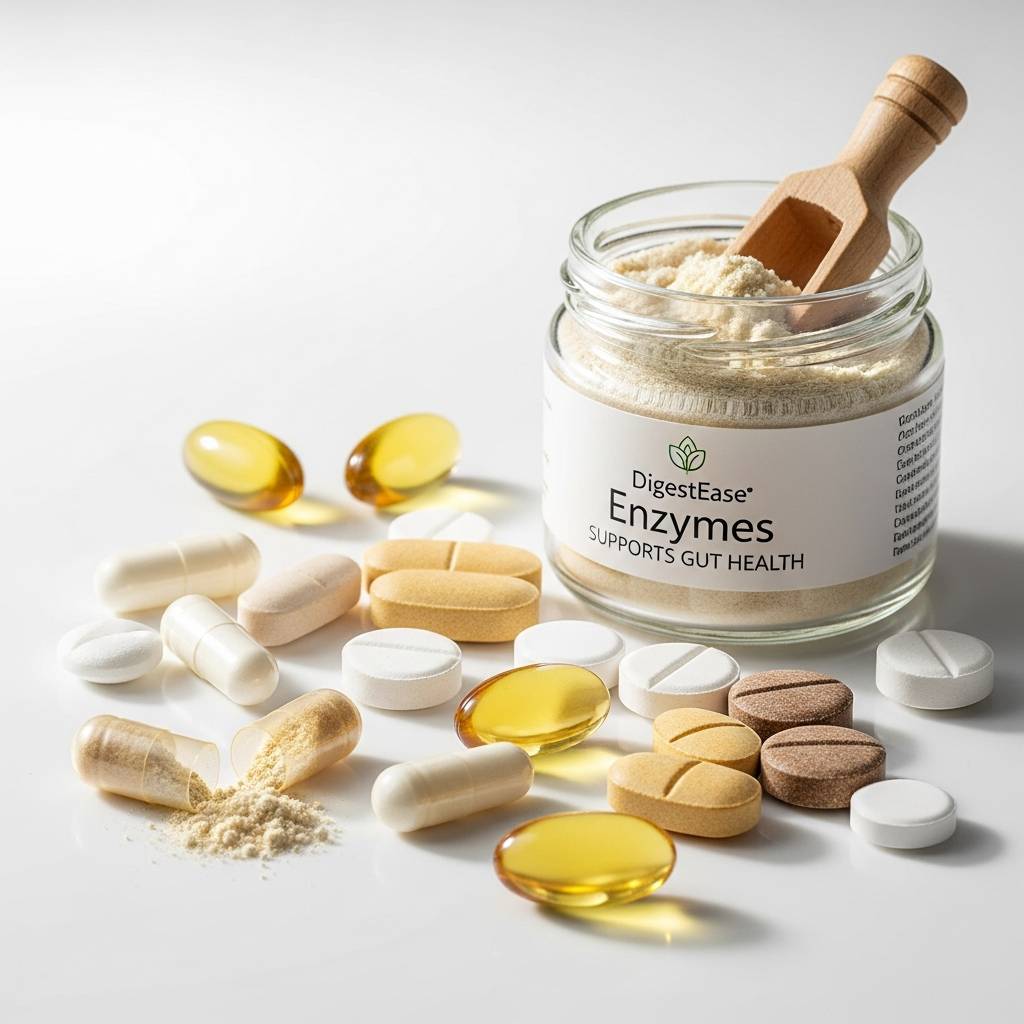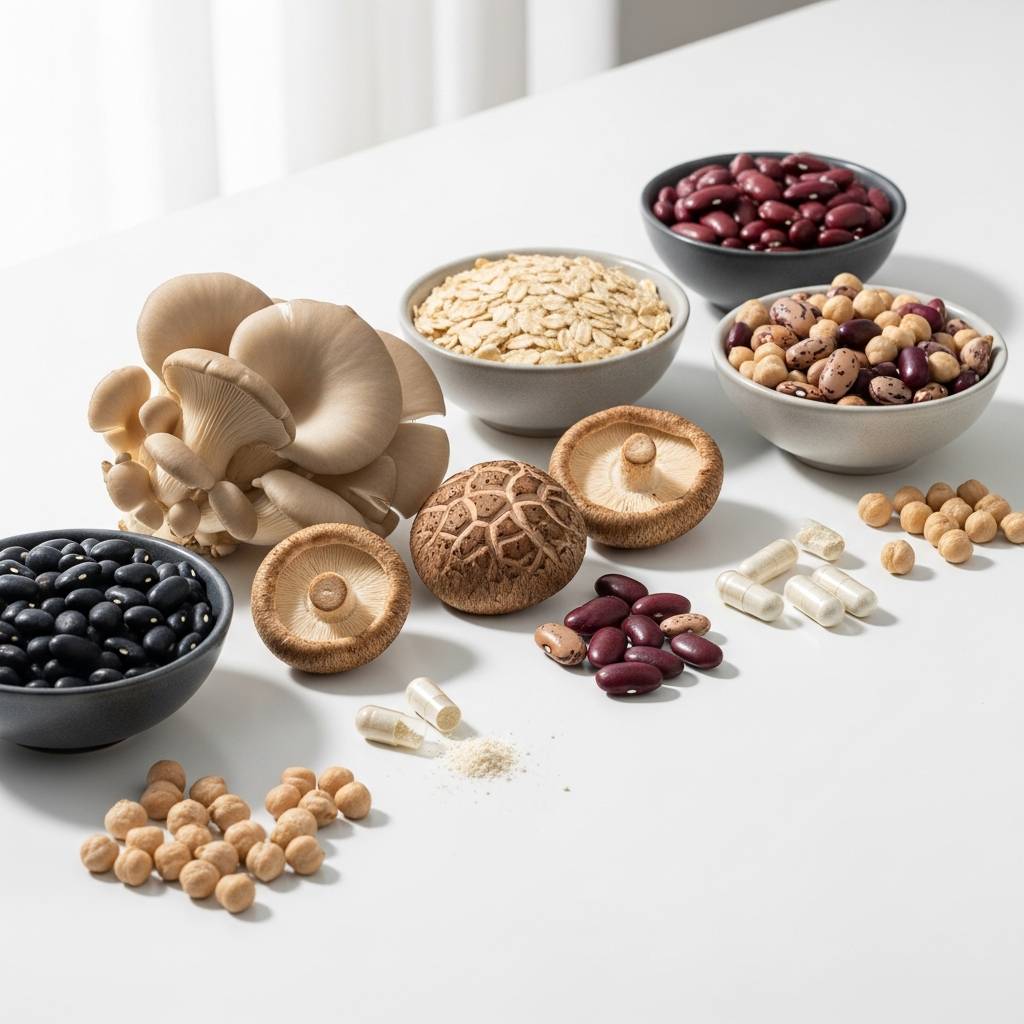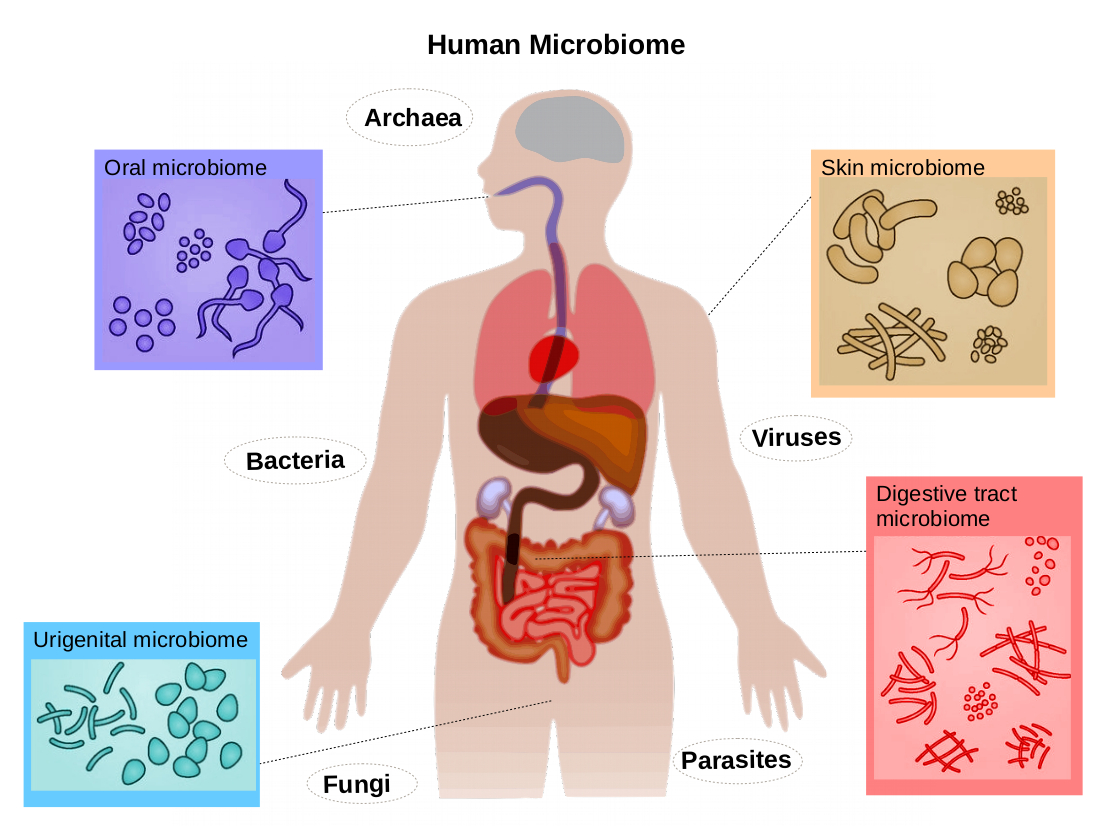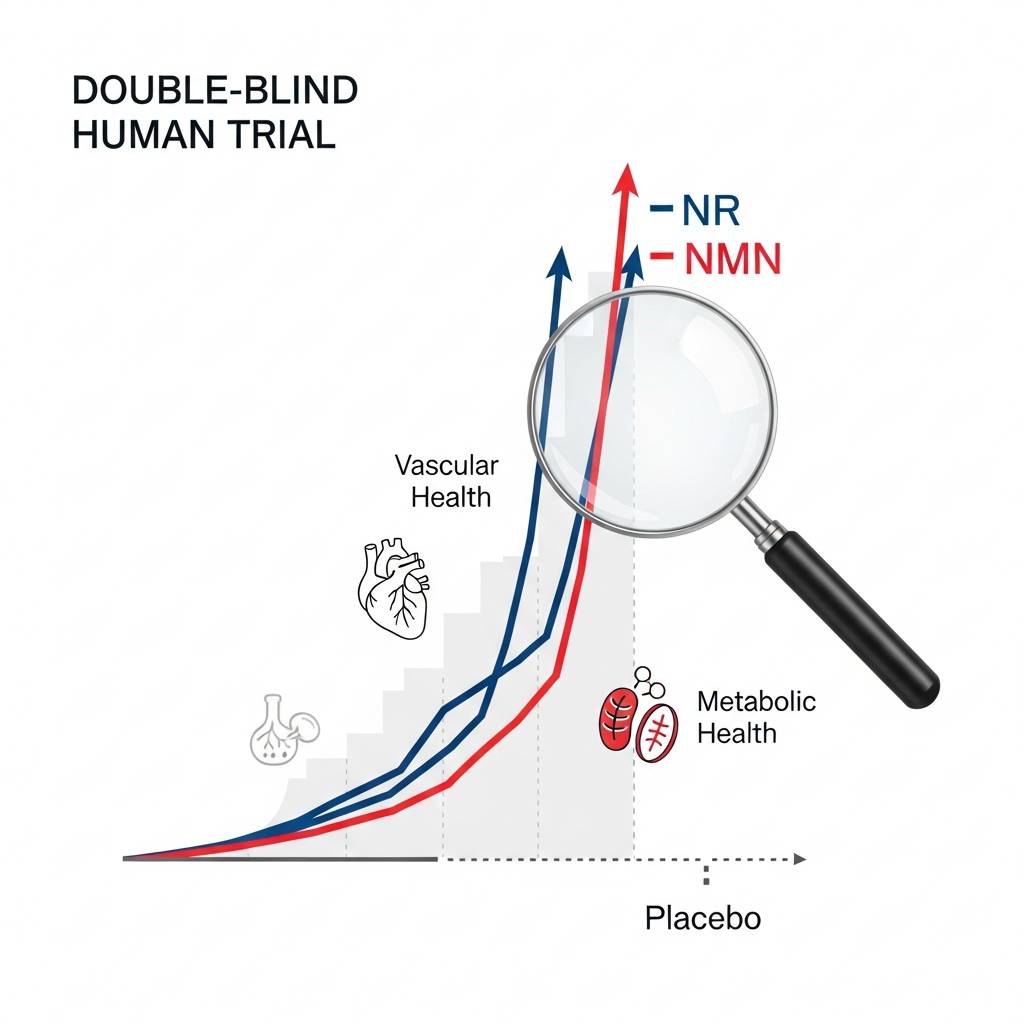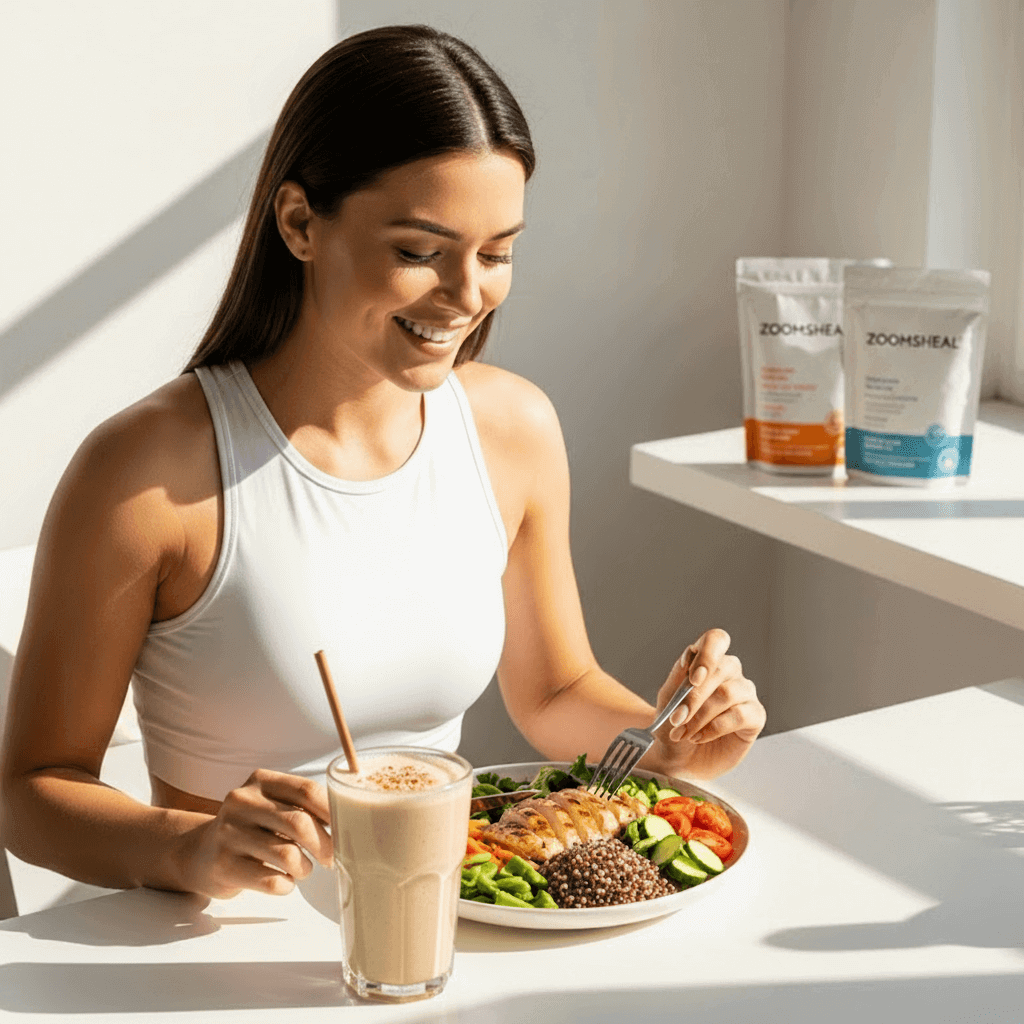The world of health and fitness is often filled with conflicting advice, and the role of protein supplements is no exception. These concentrated sources of protein are lauded for their power in building muscle, accelerating recovery, and promoting satiety. Yet, a persistent question lingers for many: Can protein supplements make you fat?
Let's cut through the noise with a clear, scientifically grounded answer: No single macronutrient, including protein, inherently or magically makes you gain fat. Fat accumulation is fundamentally governed by a principle called energy balance. When your body consistently takes in more calories than it expends over time, it stores that excess energy, predominantly as body fat. Protein supplements, like any food or beverage, contain calories. Whether those calories contribute to fat gain depends entirely on how they fit into your total daily caloric intake relative to your energy expenditure.
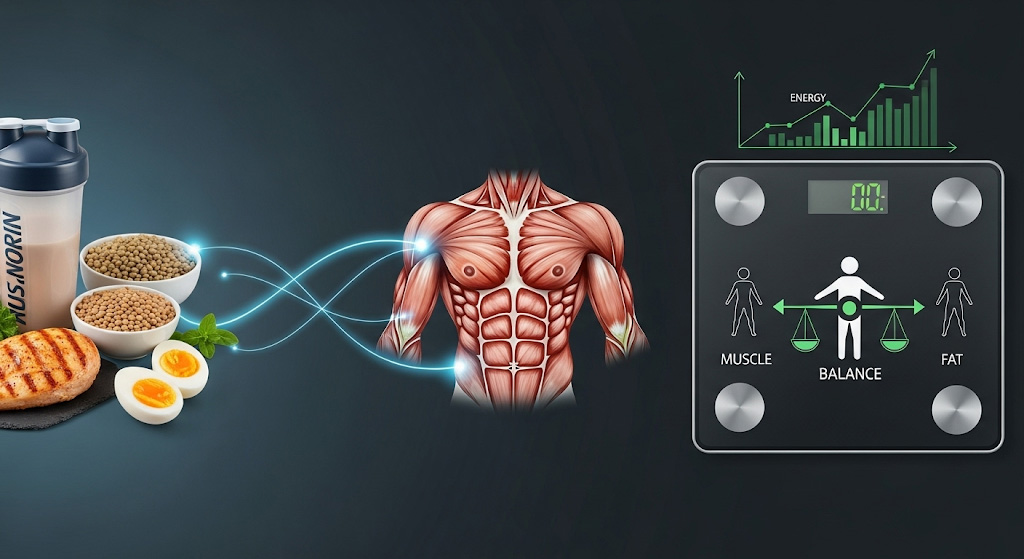
This comprehensive article will meticulously explore the intricate relationship between protein, calories, and body composition. We'll unpack protein's unique metabolic advantages, pinpoint the specific scenarios that could lead to unwanted fat gain, and provide you with expert, actionable strategies to leverage protein supplements effectively for your health and fitness goals.
The Fundamental Rule: Unpacking Energy Balance and Macronutrients
At the core of all weight management, whether gain, loss, or maintenance, lies the concept of energy balance. Your body is constantly burning calories—units of energy—to fuel every bodily function, from the silent work of your organs (Basal Metabolic Rate or BMR) to every movement you make (activity expenditure) and even the digestion of food itself (Thermic Effect of Food).
-
Caloric Surplus (Weight Gain): When the total number of calories you consume consistently exceeds the total number of calories your body expends, your body has an energy surplus. This excess energy is efficiently converted and stored, primarily as triglycerides within adipose (fat) tissue, leading to fat gain.
-
Caloric Deficit (Weight Loss): Conversely, if you consistently consume fewer calories than your body expends, your body taps into its stored energy reserves (fat and, if protein intake is insufficient, muscle) to make up the difference, resulting in weight loss.
-
Caloric Maintenance (Weight Stability): When your caloric intake closely matches your energy expenditure, your body weight tends to remain stable over time.
Protein, carbohydrates, and fats all provide calories:
-
Protein: Approximately 4 calories per gram
-
Carbohydrates: Approximately 4 calories per gram
-
Fats: Approximately 9 calories per gram (making them the most calorie-dense macronutrient)
Since protein supplements deliver calories, it’s the overall caloric load, not the protein itself, that dictates fat gain. If adding a protein shake to your diet pushes your total daily intake beyond your body’s needs, then, yes, those additional calories will contribute to fat storage, just as extra calories from cookies, pasta, or olive oil would.
Protein's Unique Metabolic Advantages: More Than Just Calories
While all calories count towards your energy balance, protein possesses distinct metabolic advantages that set it apart from carbohydrates and fats when it comes to influencing body composition:
-
The High Thermic Effect of Food (TEF): Protein has the highest Thermic Effect of Food (TEF) among all macronutrients. TEF refers to the energy your body expends merely to digest, absorb, transport, and metabolize the food you eat.
-
For protein, approximately 20-30% of its ingested calories are burned off during this complex digestive process. For example, if you consume 100 calories from protein, 20-30 of those calories are immediately used for its processing.
-
In contrast, carbohydrates have a TEF of 5-10%, and fats have the lowest, at 0-3%. This makes protein a "less efficient" calorie source for storage. More of its energy is utilized in processing, meaning fewer net calories are left to potentially be stored as fat compared to an equivalent caloric intake from carbs or fats. This metabolic expenditure contributes subtly but significantly to overall energy balance.
-
-
Unmatched Satiety and Potent Appetite Control: Protein is renowned for its superior ability to induce feelings of fullness and satisfaction, making it the most satiating macronutrient. This powerful effect on appetite is mediated by several factors:
-
Hormonal Regulation: Protein consumption triggers the release of satiety hormones like cholecystokinin (CCK) and glucagon-like peptide-1 (GLP-1), while simultaneously suppressing ghrelin, the "hunger hormone."
-
Slower Digestion: Protein takes longer to digest compared to carbohydrates, contributing to sustained feelings of fullness.
-
Stabilized Blood Sugar: Unlike simple carbohydrates that can cause rapid blood sugar spikes and subsequent crashes (leading to hunger), protein has a minimal impact on blood glucose, contributing to more stable energy levels and reduced cravings. By helping you feel fuller for longer, adequate protein intake naturally reduces overall hunger, curbs cravings, and decreases the likelihood of overeating at subsequent meals or reaching for calorie-dense, less nutritious snacks. This inherent appetite control is a critical asset for maintaining a caloric deficit or preventing unintended caloric surpluses, directly supporting weight management goals.
-
-
Preserving and Building Lean Muscle Mass: Protein is the fundamental building block of muscle tissue. It's essential not just for building new muscle (muscle protein synthesis, MPS) but also for repairing and preserving existing muscle mass, which is constantly undergoing a process of breakdown (muscle protein breakdown, MPB) and synthesis (protein turnover).
-
Metabolic Engine: Muscle tissue is metabolically active, meaning it burns more calories at rest compared to fat tissue. When you lose weight, you want to maximize fat loss while minimizing muscle loss to preserve your resting metabolic rate. Adequate protein intake is paramount in achieving this, especially during a caloric deficit.
-
Exercise Recovery: For active individuals, sufficient protein post-exercise is crucial for repairing muscle damage and facilitating muscle adaptation and growth. This leads to a stronger, more metabolically efficient body over time. By promoting muscle preservation and growth, protein supports a higher resting metabolic rate, which means your body naturally burns more calories throughout the day, even when you're not exercising.
-
-
Optimized Nutrient Partitioning: While a caloric surplus will lead to fat gain regardless of the macronutrient, protein has a unique role in nutrient partitioning. This refers to how your body preferentially directs incoming calories—whether they are stored as fat, burned for energy, or used to build and repair lean tissue. A higher protein intake, particularly in conjunction with resistance training, can subtly shift this partitioning, favoring the utilization of calories for muscle building and repair over fat storage. This doesn't mean you can eat unlimited protein without gaining fat, but it highlights protein's beneficial influence on body composition.
When Protein Supplements Could Contribute to Fat Gain: Clarifying the Nuances
Despite protein's advantages, it's crucial to understand the specific scenarios where protein supplements could, directly or indirectly, lead to unwanted fat gain:
-
The Unacknowledged Caloric Surplus: This is the most common and often overlooked culprit. If you introduce a protein supplement into your diet without adjusting other calorie sources or increasing your physical activity, those additional calories simply add to your total daily intake. For example, if your maintenance calories are 2000, and you add a 250-calorie protein shake without cutting 250 calories elsewhere or burning 250 extra calories, you've created a 250-calorie surplus that, over time, will lead to fat gain. Supplements are additions, and their calories must be accounted for within your overall energy budget.
-
Choosing Calorie-Dense "Mass Gainer" Supplements: Not all protein supplements are created equal. Many products marketed as "mass gainers" are intentionally formulated to deliver a very high calorie count per serving, often containing large amounts of carbohydrates (e.g., maltodextrin, dextrose) alongside protein, and sometimes added fats. These are designed for specific populations, such as "hardgainers" struggling to consume enough calories to gain weight, or athletes with extremely high energy demands. Misusing these products by individuals with lower caloric needs or a sedentary lifestyle can very quickly lead to an unintentional and substantial caloric surplus, resulting in fat gain. Always scrutinize the nutrition label for total calorie content per serving.
-
Neglecting Whole Foods and Nutrient Balance: While protein supplements are convenient, relying on them too heavily at the expense of a diverse, whole-food diet can lead to nutritional imbalances. A diet lacking in fiber, essential vitamins, and minerals from whole fruits, vegetables, and grains can impair overall metabolic health, even if your protein intake is high. While this doesn't directly cause fat gain (unless it leads to a caloric surplus), it undermines the holistic health goals that weight management is often part of.
-
Sweetened and Additive-Rich Formulas: Some protein powders are heavily sweetened with added sugars (e.g., sucrose, corn syrup solids) or artificial sweeteners, and may contain excessive amounts of unhealthy fats or other fillers to improve taste or texture. These additions can significantly increase the calorie count and may not align with overall health goals. Opting for cleaner, less processed protein powders is generally advisable.
-
Misconceptions About "Protein Window": While there's a concept of an "anabolic window" for optimal post-workout protein intake to maximize muscle protein synthesis, the notion that consuming protein outside this narrow window will turn it into fat is a significant oversimplification. Your body is generally efficient at utilizing nutrients throughout the day. It's the total daily protein and calorie intake that matters most for body composition, not the precise timing of every protein dose.
Types of Protein Supplements: A Brief Overview
The supplement market offers a wide array of protein types, each with its unique characteristics, influencing factors like absorption rate and amino acid profile, but all contributing calories:
-
Whey Protein:
-
Source: Derived from milk during cheesemaking.
-
Characteristics: Fast-digesting, rich in Branched-Chain Amino Acids (BCAAs), particularly leucine, crucial for muscle protein synthesis.
-
Forms: Concentrate (most common, some lactose/fat), Isolate (lower lactose/fat), Hydrolysate (pre-digested, fastest absorption).
-
Common Use: Post-workout for rapid recovery.
-
-
Casein Protein:
-
Source: Also from milk.
-
Characteristics: Slow-digesting, forms a gel in the stomach, providing a sustained release of amino acids.
-
Common Use: Before bed or during long periods without food to prevent muscle breakdown.
-
-
Soy Protein:
-
Source: From soybeans.
-
Characteristics: A complete plant-based protein, generally well-digested. Some debate exists regarding its phytoestrogen content, though modern research largely debunks major concerns for healthy individuals.
-
Common Use: Vegan/vegetarian option, general protein boost.
-
-
Pea Protein:
-
Source: From yellow peas.
-
Characteristics: A complete plant-based protein, easily digestible, hypoallergenic. Rich in BCAAs.
-
Common Use: Popular vegan/vegetarian alternative to dairy or soy.
-
-
Rice Protein:
-
Source: From brown rice.
-
Characteristics: Often combined with pea protein to create a more complete amino acid profile. Generally hypoallergenic.
-
Common Use: Vegan/vegetarian option, often blended.
-
-
Hemp Protein:
-
Source: From hemp seeds.
-
Characteristics: A complete plant-based protein, also provides fiber and healthy fats.
-
Common Use: Vegan/vegetarian option, also used for its fiber content.
-
Each type offers varying calorie counts per scoop, usually driven by its protein purity and any added ingredients. Understanding your chosen type helps you integrate it effectively.
Practical Strategies for Using Protein Supplements Without Gaining Fat
Using protein supplements effectively means integrating them intelligently into your overall nutritional strategy. Here's how to ensure they support your goals without unwanted fat gain:
-
Precisely Calculate Your Caloric Needs: This is the bedrock of any successful weight management plan. Use online calculators (e.g., TDEE calculators) as a starting point, which factor in your age, sex, weight, height, and activity level. Then, track your intake and weight over a few weeks to fine-tune these numbers based on your body's unique metabolism. This allows you to define your caloric deficit for fat loss, maintenance for stability, or surplus for muscle gain.
-
Define Your Individual Protein Goal: For most active adults aiming for body composition improvements, a protein intake of 1.6 to 2.2 grams per kilogram of body weight (or approximately 0.7 to 1.0 gram per pound of body weight) is generally recommended by sports nutrition experts. This range optimizes muscle protein synthesis, aids recovery, and maximizes satiety. This amount is challenging to achieve through whole foods alone for many, which is where supplements become invaluable.
-
Strategically Integrate Supplements into Your Diet:
-
Post-Workout Fuel: A protein shake (whey is common here for its fast absorption) within an hour or two after resistance training can quickly deliver amino acids to kickstart muscle repair and recovery. Account for its calories within your daily total.
-
Between-Meal Snack: A protein shake or protein bar can be an excellent, convenient, and highly satiating snack to bridge the gap between meals, preventing excessive hunger that might lead to overeating later.
-
Meal Augmentation: Boost the protein content of existing meals. Add a scoop to oatmeal, Greek yogurt, pancake batter, or a smoothie to turn a carb-heavy meal into a more balanced, satisfying one.
-
Convenient Meal Replacement (When Needed): On busy days when a balanced meal isn't feasible, a thoughtfully constructed protein shake (blended with fruit, leafy greens, healthy fats like nut butter, and liquid) can serve as a temporary meal replacement, ensuring you hit your macros without consuming empty calories.
-
-
Prioritize Nutrient-Dense Whole Food Proteins: While supplements are convenient, the majority of your protein intake should come from whole, unprocessed foods. Lean meats (chicken, turkey, beef), fish (salmon, tuna), eggs, dairy products (Greek yogurt, cottage cheese), legumes (beans, lentils), and nuts/seeds offer a spectrum of vitamins, minerals, and fiber that supplements lack. Supplements are meant to supplement, not entirely replace.
-
Master Label Reading: This is non-negotiable. Before purchasing any protein supplement, carefully examine the Nutrition Facts label. Pay close attention to:
-
Serving Size: Ensure you understand how many scoops or units constitute a serving.
-
Calories per Serving: This is paramount for managing your energy balance.
-
Protein Content: Is it high enough for your needs?
-
Sugars and Added Sugars: Minimize these for fat loss goals.
-
Fats: Be aware of the type and amount, especially in "mass gainer" products.
-
Ingredient List: Look for transparent lists without excessive fillers, artificial colors, or unnecessary additives. Opt for reputable brands that provide third-party testing for purity.
-
-
Ensure Adequate Hydration: A higher protein intake, especially from supplements, increases your body's need for water. Sufficient hydration supports kidney function, aids digestion, and can also contribute to feelings of fullness.
-
Combine with Resistance Training: While protein supports muscle preservation, actively engaging in resistance training (lifting weights, bodyweight exercises) is the most effective stimulus for building and maintaining metabolically active muscle mass. This synergy maximizes the body composition benefits of protein intake.
-
Monitor and Adjust: Pay close attention to your body's response. Track your weight, body composition changes, energy levels, and how satiated you feel. Be prepared to adjust your protein and overall caloric intake based on your progress and evolving goals.
Conclusion: Protein Supplements as a Powerful, Strategic Tool
The straightforward answer to "can protein supplements make you fat?" is no, not in themselves. Protein supplements are simply a concentrated source of calories, no different in that regard from a chicken breast or a handful of almonds. Fat gain results from a consistent and prolonged caloric surplus, regardless of the macronutrient source.
When intelligently incorporated into a well-planned, calorie-aware dietary strategy that supports your overall energy balance and is combined with appropriate physical activity, protein supplements emerge as an incredibly powerful and versatile tool. They can significantly aid in:
-
Enhancing satiety, which helps naturally reduce overall calorie intake.
-
Preserving and building lean muscle mass, which is metabolically vital for a healthy resting metabolism.
-
Accelerating recovery from demanding exercise.
-
Providing convenience in meeting daily protein targets that might otherwise be challenging through whole foods alone.
By understanding protein's unique metabolic advantages and applying strategic consumption, you can confidently leverage protein supplements to support your fitness aspirations, optimize your body composition, and enhance your overall well-being without any fear of unwanted fat accumulation.
Authoritative Information Sources:
- https://ods.od.nih.gov/factsheets/Protein-HealthProfessional/
- https://www.eatright.org/food/nutrition/nutrient-rich-foods/protein
- https://jissn.biomedcentral.com/articles/10.1186/s12970-017-0177-8
-
https://jissn.biomedcentral.com/articles/10.1186/s12970-023-00599-2
- https://www.mayoclinic.org/healthy-lifestyle/weight-loss/expert-answers/protein-for-weight-loss/faq-20058220

